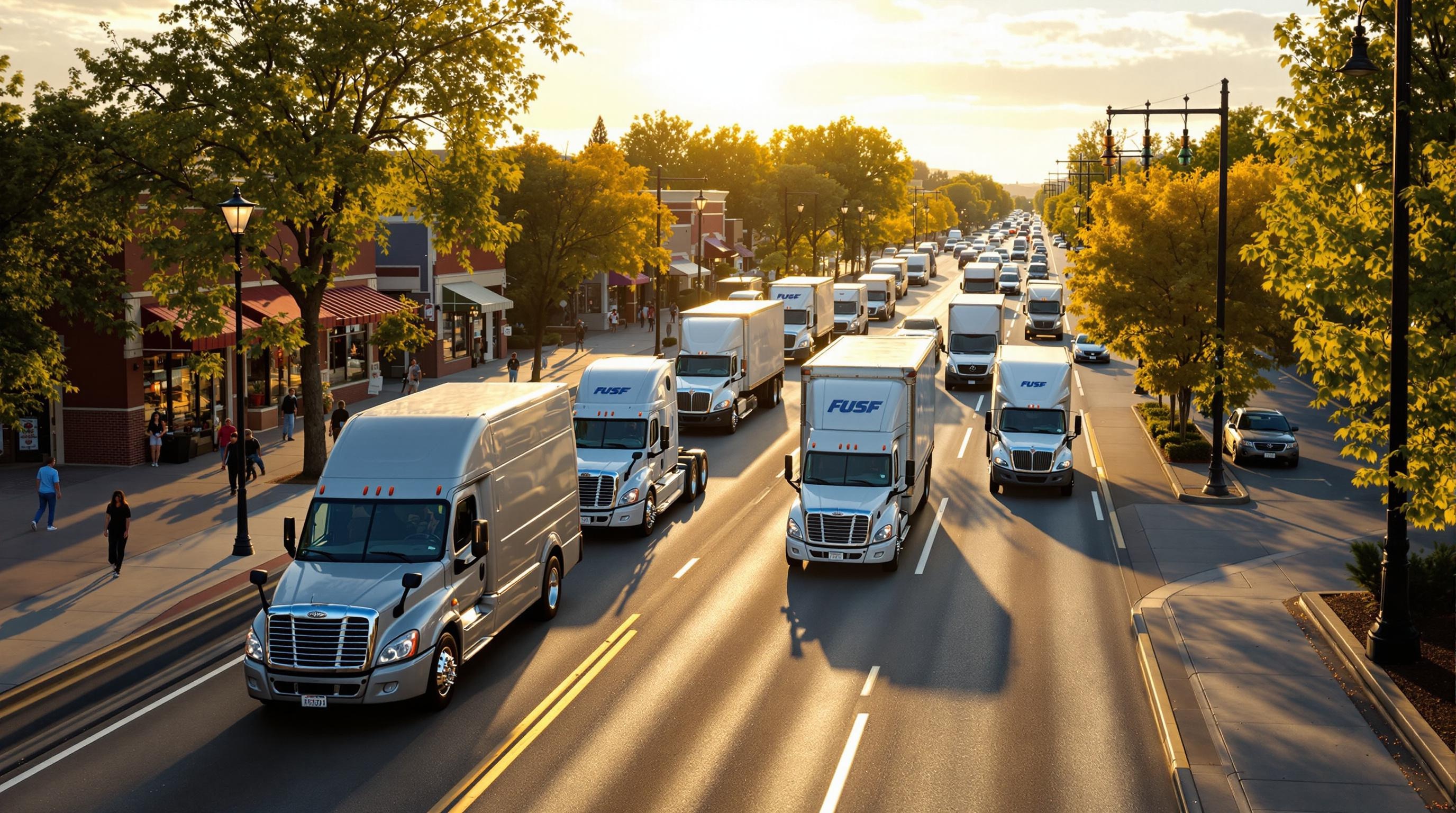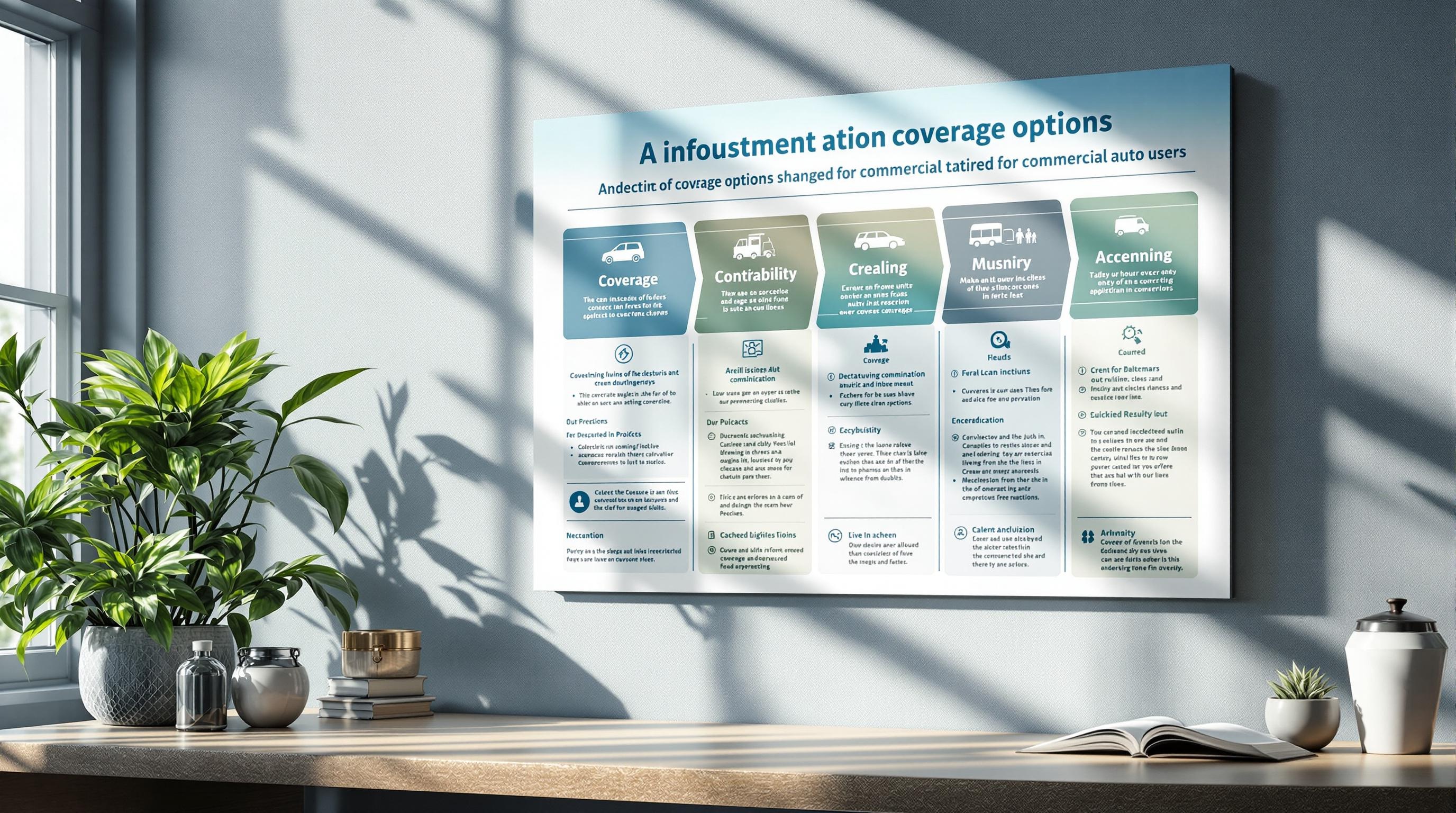Longmont Commercial Auto & Bond Insurance: Navigate Colorado's Unique Risks with Confidence
Protect your Longmont business with insurance that understands local challenges—from hailstorms on Diagonal Highway to performance bonds for St. Vrain Valley projects. Colorado-specific coverage from trusted local experts.

Trusted by Longmont Businesses Since 1992
Local expertise that understands the unique risks of operating commercial vehicles and securing bonds in Boulder County's dynamic business environment
4.9/5 Stars
Google Reviews from real customers
97% Retention Rate
Fort Collins families and businesses protected
Independent
We work for you, not insurance companies
Local
Fort Collins owned & operated since 1992
Commercial Auto & Bond Insurance: Your Business's Shield on Longmont Roads and Projects
From hail damage on Ken Pratt Boulevard to bonding requirements for Left Hand Creek construction projects, Longmont businesses face unique insurance challenges

When Hail Strikes in Longmont: A Tale of Preparedness
Last May, a severe hailstorm swept through southwest Longmont, dropping 2-inch hailstones that caused extensive damage to vehicles along the Diagonal Highway corridor. A local delivery company with a fleet of 10 vans faced potential business interruption—but their comprehensive commercial auto policy covered not just the physical damage to their vehicles but also the temporary replacement costs while repairs were underway.
The difference? A local agent who understood Longmont's specific weather patterns and had recommended appropriate physical damage coverage limits and a rental reimbursement endorsement tailored to the business's needs. While other businesses struggled with inadequate coverage and lengthy downtimes, this company was back on the road serving their customers within 48 hours.

Bonding Success: How a Longmont Contractor Won the Bid
When a growing Longmont construction firm bid on their first major project with the St. Vrain Valley School District, they encountered an unfamiliar requirement: a performance bond worth 100% of the $1.2 million contract value. Without previous bonding history, they worried their business would be shut out of this growth opportunity.
Their local insurance broker stepped in with crucial guidance, helping them prepare the necessary financial documentation and leveraging relationships with multiple surety providers to secure the bond despite their limited history. The result? A successful bid, a completed project at Longmont High School, and a contracting business that has since grown to employ 15 local residents and regularly performs work throughout Boulder County.

Navigating Winter Risks on Ken Pratt Boulevard
A Longmont food delivery service experienced the challenges of Colorado's winter conditions when one of their drivers was involved in a multi-vehicle accident on an icy Ken Pratt Boulevard during last year's November freeze. Though not at fault, the business faced potential liability issues and the immediate need to replace their specialized delivery vehicle.
Because their insurance advisor had anticipated Longmont's specific seasonal risks, their commercial auto policy included enhanced liability protection well above Colorado's 25/50/15 minimums and physical damage coverage that included their attached food warming equipment. While nearby businesses struggled with basic policies, this company had continuous operations and reputation protection thanks to coverage built specifically for Longmont's winter driving challenges.
Build Your Protection
Every coverage serves a purpose. Here's what each one actually does for you.
Commercial Auto Liability
What it covers: Protects your business when your vehicles are responsible for bodily injury or property damage to others. Includes legal defense costs if your business is sued following an accident.
Why it matters in Longmont: Colorado law requires only 25/50/15 minimum coverage ($25,000 bodily injury per person, $50,000 per accident, $15,000 property damage), but Longmont's busy corridors like Highway 119 and Diagonal Highway see higher-than-average commercial traffic and accident rates. With the average new vehicle in Longmont costing over $50,000, state minimums leave dangerous gaps.
Local considerations: Businesses serving Longmont's growing southwest neighborhoods like Prospect New Town face higher liability exposure due to more pedestrians and higher property values. We recommend minimum limits of 100/300/100 for most Longmont commercial operations.
Physical Damage Coverage
What it covers: Protects your vehicles against damage from collisions, weather events, theft, and vandalism through comprehensive and collision coverage.
Why it matters in Longmont: The May-July hail season in Longmont is particularly severe, with 68 radar-confirmed events in the last year alone. The May 9, 2023 storm dropped 2-inch hailstones that caused extensive vehicle damage throughout the city, particularly in areas near Diagonal Highway and Highway 66.
Local considerations: Longmont businesses face unique seasonal risks including winter ice (especially on Ken Pratt Boulevard), intense summer hailstorms, and occasional flash flooding near St. Vrain Creek. Physical damage coverage should include appropriate deductibles balanced against Longmont's specific weather patterns, with particular attention to comprehensive coverage for hail events.
Hired & Non-Owned Auto Coverage
What it covers: Extends liability protection when employees use personal or rented vehicles for business purposes.
Why it matters in Longmont: With 9.2% of Longmont residents commuting by bicycle and many businesses utilizing hybrid work models, the use of personal vehicles for business errands is increasingly common. This creates significant liability gaps when employees run business errands in their own cars.
Local considerations: Longmont's diverse business landscape includes many small companies that don't own fleet vehicles but routinely send employees to service locations throughout Boulder County. Coverage is particularly important for businesses serving clients in multiple neighborhoods from Southmoor Park to Blue Mountain Vista, especially given Colorado's comparative negligence laws that can leave businesses partially liable even in shared-fault accidents.
Contractor License Bonds
What it covers: Guarantees that contractors will comply with state and local regulations and fulfill obligations to clients according to Colorado licensing standards.
Why it matters in Longmont: Boulder County and the City of Longmont have specific bonding requirements for contractor licensing across various trades. These bonds protect the public by ensuring contractors adhere to building codes and fulfill contractual obligations, especially important in Longmont's mix of historic downtown properties and newer developments.
Local considerations: Longmont's diverse housing stock ranges from century-old structures in the Central Business District to modern eco-friendly developments like Prospect New Town. Each presents unique compliance challenges that contractors must navigate. Bonding requirements vary by trade and project type, with Longmont commercial projects often requiring specific license classifications and bond amounts reflective of local ordinances.
Performance Bonds
What it covers: Guarantees that a contractor will complete a project according to contract specifications, protecting the project owner if the contractor fails to fulfill obligations.
Why it matters in Longmont: Major Longmont institutions like St. Vrain Valley School District, UCHealth Longs Peak Hospital, and the City of Longmont require performance bonds for significant construction projects, typically set at 100% of the contract value. Without bonding capacity, contractors cannot access these lucrative local opportunities.
Local considerations: Longmont's active municipal investment in infrastructure development, including projects along Left Hand Creek and throughout the city's expanding areas, creates substantial opportunities for contractors with proper bonding. Local flood mitigation projects and school renovations typically require both performance and payment bonds, with qualification standards that examine contractor financial stability and project history specific to Boulder County conditions.
Bid Bonds
What it covers: Guarantees that a contractor will honor their bid and enter into the contract if selected, typically representing 5-10% of the total bid amount.
Why it matters in Longmont: Public projects in Longmont, from municipal buildings to school renovations, require bid bonds as standard practice before contractors can even submit proposals. This ensures only serious, qualified contractors participate in the bidding process.
Local considerations: Longmont's growing population (currently 97,200 residents) drives consistent infrastructure development requiring bonded contractors. Recent examples include flood control projects along Left Hand Creek and expansion of city facilities. The local bonding market has seen increasing requirements for infrastructure resilience following historic flooding and growing climate concerns, making relationship with a knowledgeable surety provider essential for Longmont contractors.
Smart Protection Strategies for Longmont Business Vehicles and Projects
Make informed insurance decisions based on Longmont's unique commercial landscape, from tech manufacturing in the northeast to historic downtown's small businesses

Starting Your Longmont Business Journey
New businesses in Longmont face crucial insurance decisions that set the foundation for growth. For startups with minimal vehicle assets, we typically recommend beginning with hired and non-owned auto coverage attached to a business owner's policy while focusing bonding capacity on securing the appropriate contractor license bonds required by Boulder County.
Startups operating along busy corridors like Ken Pratt Boulevard should prioritize higher liability limits due to increased traffic exposure. Businesses serving Longmont's tech sector (including Seagate's 800-employee facility) often need to meet specific insurance requirements from these larger clients, including evidence of adequate auto liability and appropriate bonding for on-site contractors.

Growing Your Longmont Business Assets
As your Longmont business expands to multiple vehicles or larger contracts, your insurance strategy should evolve to include fleet coverage with symbol 7 designation (specifically described autos) allowing customization per vehicle type. Businesses serving Longmont's diverse neighborhoods from affluent Southwest areas to the Central Business District need different liability considerations based on property values and traffic patterns.
Growing contractors should establish a bonding line of credit appropriate for Longmont municipal projects, typically requiring performance and payment bonds equal to 100% of contract values. Fleet operations should implement telematics and driver safety programs specifically addressing Longmont's seasonal challenges like the November-March ice season on Diagonal Highway and the May-July hail corridor along Highway 66.

Protecting Your Established Longmont Enterprise
Mature Longmont businesses with substantial vehicle fleets and regular bonding needs require sophisticated risk management strategies. Established companies like Longmont Dairy or businesses serving UCHealth Longs Peak Hospital need comprehensive protection including umbrella policies extending liability coverage well beyond primary auto limits.
For contractors regularly performing bonded work for Longmont's largest employers (including St. Vrain Valley Schools' 5,848 employees), maintaining strong financial ratios and documentation is essential for optimal bonding rates and terms. Larger fleets should consider captive insurance programs or custom-designed risk retention approaches, particularly for Longmont-specific exposures like the hail corridor along Highway 119 or winter driving challenges on Ken Pratt Boulevard where traditional insurance may have coverage limitations.
Your Longmont Commercial Auto & Bond Insurance Decision Framework
Answer these three questions to guide your coverage decisions:
- Where does your business operate in Longmont? Western neighborhoods like Blue Mountain Vista face higher wildfire exposure while businesses along Highway 119 and Highway 66 experience the highest hail risk. Downtown historic district operations face different liability concerns than those in newer developments like Prospect New Town.
- How essential are vehicles to your daily operations? Businesses dependent on daily deliveries throughout Longmont need more comprehensive physical damage coverage with lower deductibles and rental reimbursement, while operations with occasional vehicle usage might tolerate higher deductibles in exchange for premium savings.
- What types of contracts do you bid on in Boulder County? Contractors working with Longmont's public entities (City, County, School District) need established bonding capacity, while those serving private residential clients in neighborhoods like Southmoor Park have different requirements based on project size and homeowner expectations.
Common Insurance Mistakes for Longmont Businesses
- Carrying only Colorado state minimum auto liability limits of 25/50/15 - Grossly inadequate for Longmont's property values and legal environment where the average new vehicle costs over $50,000 and bicycle commuters represent 9.2% of traffic.
- Missing critical endorsements for Longmont's weather patterns - Failing to specify appropriate comprehensive coverage for the May-July hail season or overlooking rental reimbursement during the lengthy repair times following major storms.
- Ignoring hired & non-owned exposure - Many Longmont businesses don't realize their significant liability when employees use personal vehicles for company errands along busy corridors like Diagonal Highway.
- Waiting until the bid opportunity to seek bonding - Attempting to secure performance bonds when already facing a Longmont School District deadline instead of establishing bonding capacity proactively.
- Underestimating Longmont's seasonal risks - Failing to plan for November-March winter driving conditions on Ken Pratt Boulevard or the flash flood potential along St. Vrain Creek during spring runoff.
Smart Protection Strategies for Longmont Business Vehicles and Projects
Make informed insurance decisions based on Longmont's unique commercial landscape, from tech manufacturing in the northeast to historic downtown's small businesses
What You're Actually Buying
Your premium isn't just an expense—it's risk transfer. Here's how the economics really work:
Liability Coverage
Protecting your assets from lawsuits that could claim your home, savings, and future earnings
40%
Physical Damage
Protecting your vehicle investment and ensuring you can replace transportation quickly
30%
Medical Coverage
Immediate care without health insurance delays or fault determination
15%
Convenience Coverage
Rental cars, roadside assistance, and gap coverage that keeps life moving
15%
Cost vs. Consequences
Serious At-Fault Accident
With Proper Coverage:
$500 - $1,000 (Your deductible)
Without Coverage:
$50,000 - $500,000+ (Your entire financial future)
Vehicle Theft/Total Loss
With Comprehensive:
$250 - $1,000 (Deductible + replacement car)
Self-Insured:
$15,000 - $60,000+ (Full replacement cost)
Hit by Uninsured Driver
With UM Coverage:
$0 - $500 (Fully protected)
Without UM:
$5,000 - $100,000+ (Sue someone with no assets)
Protect Your Longmont Business with Local Expertise
Join 250+ Longmont business owners who trust FOCO Insurance to navigate Boulder County's unique commercial vehicle and bonding challenges

FAQs
Find answers to your most pressing insurance questions right here.
